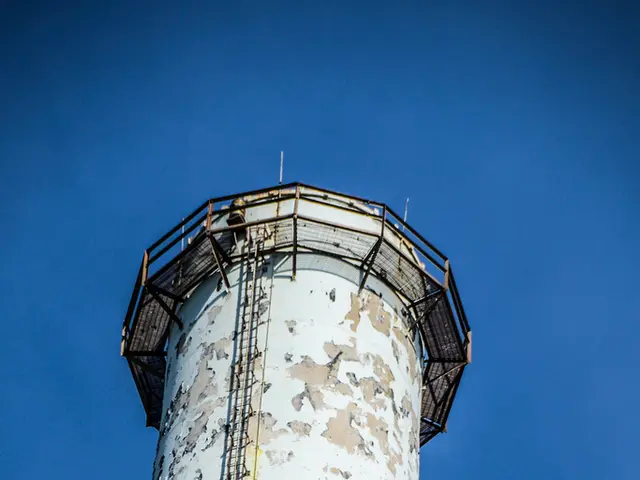Musk highlights federal expenditure, minimizing expenses to a lesser extent than anticipated
LOOSE CANNON Elon Musk's drive to chop government spending appears to have missed its mark, falling well short of his initial lofty declarations—even his scaled-down targets.
It didn't have to be like this.
According to experts spanning the political spectrum, the primary problem was a failure to integrate individuals knowledgeable about government operations into Musk's tech-focused team.
Even that might not have accomplished Musk's original $2 trillion target, which equals the size of the federal deficit.
Musk, who steps down as head of the Department of Government Efficiency this week, reduced his savings goal from $2 trillion to $1 trillion, finally settling on a mere $150 billion. The current DOGE results fall short of President Bill Clinton's bureaucracy streamlining initiative, which saved the equivalent of $240 billion by the end of his second term, reducing the federal workforce by over 400,000 employees.
It seems clear that Musk wasn't able to alter the spending trajectory, despite reducing the workforce by thousands. The Yale Budget Lab, analyzing Treasury data, reveals that government spending is flowing out at an accelerated pace compared to the previous two years.
"It was an impossible goal they were trying to achieve," said Alex Nowrasteh, Vice President of Economic and Social Policy Studies for the Cato Institute, a libertarian think tank. "A more knowledgeable DOGE team wouldn't have made insane promises that would be impossible to keep. They set themselves up for failure."
At a White House event with Trump, Musk announced that his team would continue and reiterated the goal of reaching at least $1 trillion in savings.
"This isn't the end of DOGE, but really the beginning. The DOGE team will only grow stronger over time. It's permeating throughout the government," Musk said in the Oval Office, wearing a black blazer emblazoned with "The Dogefather." "We do expect over time to achieve the $1 trillion." Early evidence suggests that this goal will be extremely difficult to reach.
By relying primarily on information technology experts, Musk stumbled through Washington and sometimes cut workers essential to President Donald Trump's agenda. Immigration judges targeted during a push for increased deportations and technologists from the Bureau of Land Management purged from the Department of Interior, despite needing clearance for petroleum exploration, a Trump administration priority, were among the unfortunate casualties.
In many cases, fired employees were rehired, adding administrative costs to an effort meant to cut expenditures.
"I just think there were a lot of unforced errors that a more knowledgeable DOGE team would have avoided," Nowrasteh said.
Grover Norquist, President and Founder of the conservative Americans for Tax Reform, offered a more sympathetic view of Musk's work, stating that it should be judged not just by the total dollars saved but his ability to shed light on problematic issues.
"When you find the problem, you don't know how far the cancer has spread. You just found a cancer cell," he said.
Norquist suggested that it's up to Congress to follow Musk's lead and establish a permanent structure to carry on the work after he steps down.
"I just think it's going to be seen five to ten years from now as something very big and very permanent, and that was done only because of a guy like Musk, who can come in and shake things up," Norquist said.
Elaine Kamarck, a key figure in Clinton's government efficiency push, explained that their efforts were guided by more modest fiscal targets and focused on making the government more responsive to its users, emphasizing updates to hiring and purchasing procedures.
Clinton's effort saved $136 billion by the end of his second term, the equivalent of over $240 billion today, and contributed to budget surpluses for each of the final four fiscal years he was in office.
Kamarck expects what she calls Musk's "chaotic" approach will reveal mistakes or oversights that could create crises down the road, such as transportation issues, natural disaster responses, or entitlement benefit delivery.
"These are the things that really hurt presidents, and they are increasing the probability that something is going to happen," Kamarck said. ____ Associated Press writer Chris Megerian contributed from Washington.
Top Stories
- 5 Missing Band Members Found Slain in Mexican Border Town; Authorities Blame Gulf Cartel
- New COVID-19 Variant Detected in Washington State: Here's What You Need to Know
- High School Senior Ends Up Stuck on Mount Si; Rescuers Call for Caution
- Utah Man Seriously Injured in 90-Foot Jump at Popular Oregon Waterfall
- The Sacred Undergarment Creating a Buzz Among Mormon Women
- The failures of Elon Musk's Department of Government Efficiency, as revealed by the Yale Budget Lab, have raised concerns about future spending trajectories in the government.
- The Seattle-based technology company, DOGE, focused primarily on information technology experts, faced criticism for stumbling through Washington politics, even cutting workers essential to President Donald Trump's agenda.
- The cancellation of immigration judges targeted during a push for increased deportations and the removal of technologists from the Bureau of Land Management, needed for petroleum exploration, were among the uncertain consequences of Musk's team's actions.
- Although Elon Musk initially aimed to save $2 trillion, he eventually reduced his goal to a mere $150 billion, a figure that even now seems challenging to reach, as early evidence suggests.
- The discovery of a new COVID-19 variant in Washington state is creating a buzz in the realm of policy-and-legislation, as health experts and government officials work to understand and respond to the potential implications for the general-news landscape.







